I don’t know how many of you ever raised chickens but the old joke went something like this. Question: “Hey, do you know what that white stuff is on the top of the chicken shit?” Answer: “Nope.” Reply: “That’s chicken shit too!”
Well, as it turns out, it’s really uric acid (the white part of the poop). The dark part is undigested feces.
So how do nesting birds deal with the excrement of all those nestlings until they fledge? Here’s a photo of a House Finch nest before the eggs hatch and the hatchlings start producing fecal sacs.
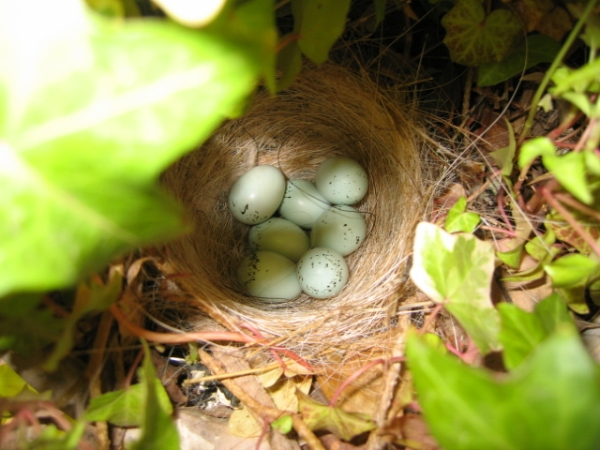
The fecal sac is a translucent gelatinous membrane containing the excrement of nestling birds. In the case of the House Finch, both the male and female eat the fecal sacs of young as they are voided until about the fifth day after hatching. At this point the chicks begin depositing the fecal sacs on the rim of the nest.
Fecal sac removal then stops and fecal sacs accumulate around the rim of the nest, creating a characteristic appearance1 as you can see in this photo of the chicks nearing fledging age.
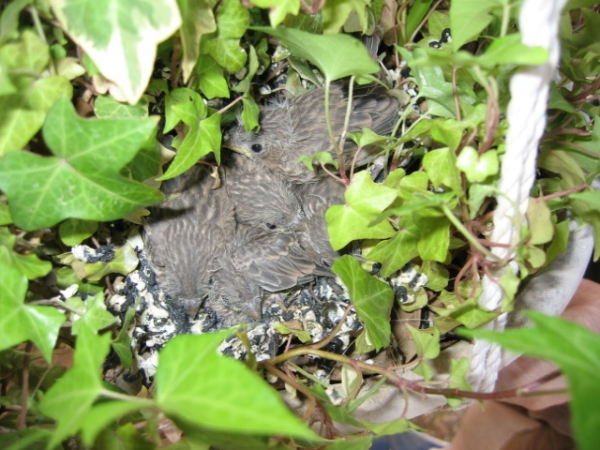
This system would never due for cavity nesting birds. The nest would be heavily soiled inside the cavity long before the birds were ready to fledge.
You see, nestlings defecate immediately after being fed. Cavity nesting birds bring food into the nest, then wait a moment and grab the fecal sac as it emerges from the nestling. They carry the enclosed excrement out from the nest and discard it some distance away.
This is what they look like, demonstrated nicely by this male Western Bluebird.
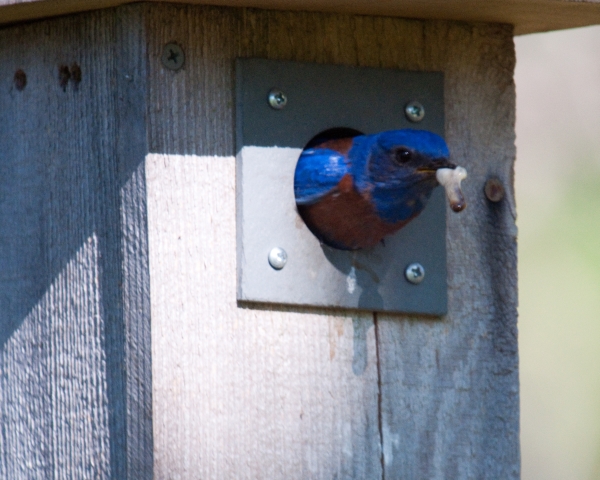
Other nesting birds, most notably raptors, herons and some sea birds, defecate by backing up to the edge of the nest and producing a projectile poop squirt like this Red-tailed Hawk nestling.
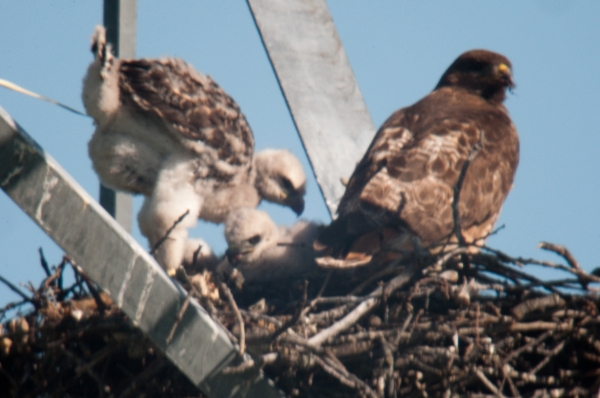
This adult Bald Eagle politely moves away from the nest to defecate (watch out).
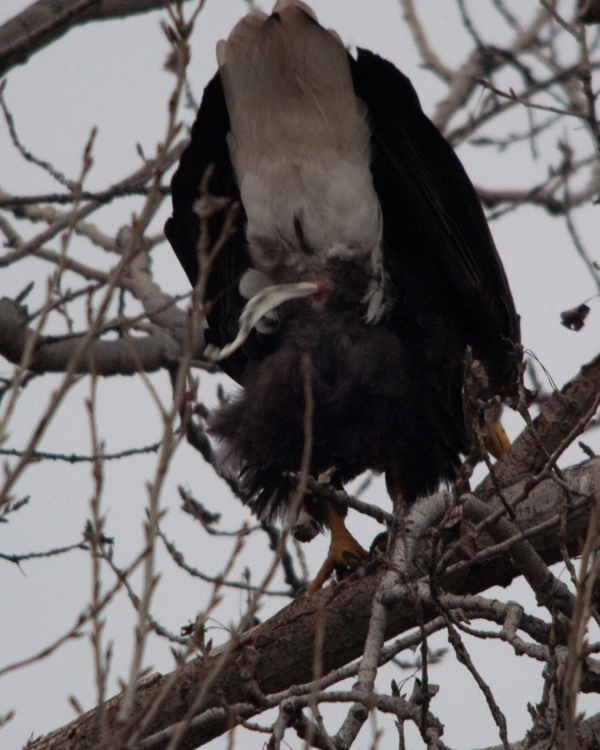
But the eaglet is just beginning to branch. Besides, it has just been fed. So I will leave you with the classic way to tell if a nesting bird is getting ready to poop. They will back up to the edge of the nest and let ‘er rip!
httpv://youtube.com/watch?v=fHSgyxRQXvg&feature=youtu.be
References: 1 Birds of North America Online
________________________________________________________________________________________
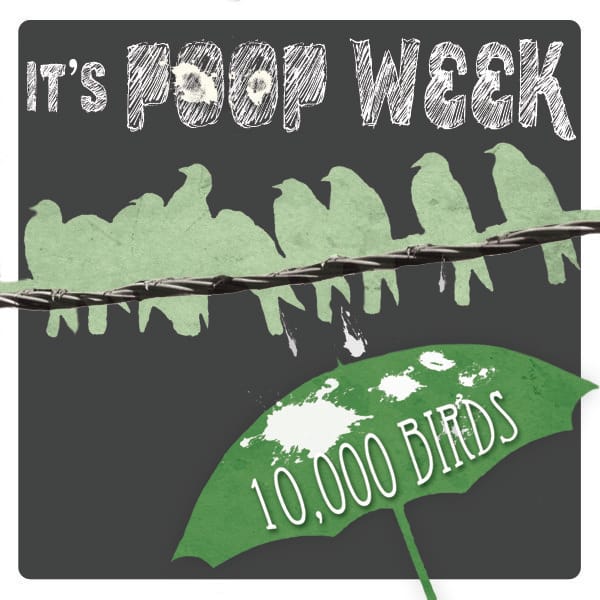 Poop Week is a week of themed posts on 10,000 Birds that cover the intersection of poop and birding, a fertile precinct if there ever was one. Rather than just discuss the horror of a pigeon dropping droppings on someone’s head we decided to really get down the nitty-gritty details of poop, to the point where it is squishing up between our toes. Not only is Poop Week a fascinating way to spend seven days in June it is also a serious attempt to elevate the level of discourse in the bird blogosphere, which, as we all have no choice but to admit, is far too low. Enjoy, and make sure to wipe up afterwards, would you?
Poop Week is a week of themed posts on 10,000 Birds that cover the intersection of poop and birding, a fertile precinct if there ever was one. Rather than just discuss the horror of a pigeon dropping droppings on someone’s head we decided to really get down the nitty-gritty details of poop, to the point where it is squishing up between our toes. Not only is Poop Week a fascinating way to spend seven days in June it is also a serious attempt to elevate the level of discourse in the bird blogosphere, which, as we all have no choice but to admit, is far too low. Enjoy, and make sure to wipe up afterwards, would you?
________________________________________________________________________________________







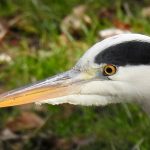
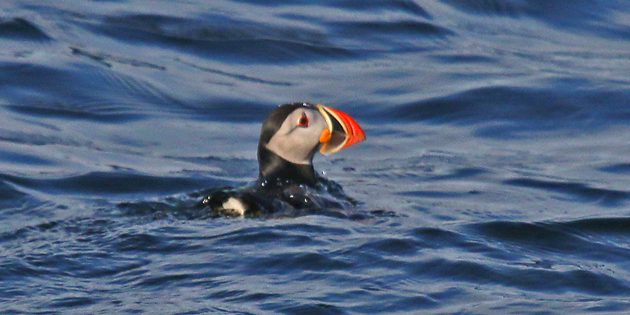


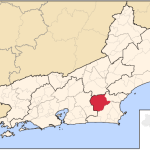
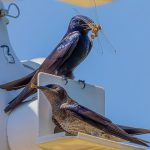
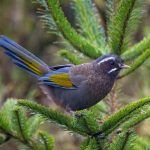
Wow, amazing photos, Larry! How long have you been waiting for a chance to use them?
WOW! What a shot! 🙂
@Mike funny you should ask 😉 A birding friend of mine told me a few years ago he knew a lister that kept a defecation list. Now that’s what I call a hard core lister! To tell you the truth, I didn’t know if I would ever post these photos but here I am! Thanks for the opportunity!
@Clare and Grant thanks!
Yes, you posted some very nice nesting manners. I have not been hit yet, but now I know some day the splatter will hit me!
FWIW, chickens who are brooding on a nest (hatching eggs) only defecate once or rarely twice a day. They “hold it all in” while setting, and then will leap up, take a massive, stinky “broody poop”, eat and drink really fast, and then dash back to the nest to resume setting. I presume other avian species are the same. You can see our heritage breed chickens on our website above.
Thank you, Larry, for the article and the photos. We have a finch nest on top of our patio lamp and it’s covered in poop. I didn’t know what it was so I had to look it up, and I found your article. Many thanks.
SAME HERE! Only the Finch is nesting in a wreath that is hanging on my front door! I was becoming very worried for the birds being around all that poop! it is a LOT and they are no where near ready to leave the nest it seems. GROSS! so once they leave the nest.. I suppose I will be the one to clean it up!?
I have the same problem on my screened in porch the wreath is filled with 3 little birds and
Lots of poop!
You are welcome Juliet!
@LBaker if you don’t clean it up, I don’t know who will 😉
@Bridget those finches do produce a lot of poop before they fledge. The good thing is that it hardens up to make it easier to clean up!
Larry, should I remove the chicks from the box (nest) then clean it up and out them back? Mum and dad are still taking care of them but not all the time
@Gaby, I don’t know what species of bird you have nesting this time of year. Are you in the Southern hemisphere? Whatever the case, I try not to disturb nesting birds if at all possible. I always wait until the nestlings have fledged before cleaning out the nest box.
I hated to do it, but I think it was a robin that built a wonderful nest under my deck over my patio. Only took him a couple of days, but I was afraid if I left it there, that my patio would be inundated with bird poop. I had already had to shoo them away from my deck railing as they were pooping all over that, as well as the patio below. I will keep rechecking so that another nest doesn’t get built, if in fact the expectation will be lots more bird poop near the nest. Is this the case? Or should I leave the nest alone? I don’t mind them building the nest, I just don’t want bird poop as a result….
If they were robins you didn’t have to worry about poop at the nest as young excrete a fecal sac which the adult carries away from the nest for disposal.
Ok. Thank you! Now I feel bad that I moved it. It was such a nice nest. However, I think that it is the mother robin that is leaving the feces, as there are no hatched babies as yet. Isn’t it the adult robins that are doing the pooping?
Also, if I were to put it back I have heard the mother robin can sense it has been touched by human hands, and therefore she will not return to the nest. Is this correct? Also, the mud that was “holding” it to the wood I loosened, so not sure it will be “anchored” very well once put back.
I should post a picture of my blacktop driveway. The robins use it consistently to drop the poop sacs. They do so, even though there is a perfectly good strip of grass and a field right next to the driveway. People who see the mess comment that it is weird because there aren’t any trees right there, so I have to explain how the poop gets there. At times, it almost looks like there is a pattern – robin art!
Am I the only one who has seen the parent robins eat their babies’ poop? As soon as they are fed, the parent nudges their rear-end until a big poop come out. the parent gets it as it exits the baby, then immediately swallows the poop! (NOT carries it elsewhere to drop!) At first, I thought I was seeing things, so I videoed it, and sure enough, they actually swallow the stuff! Any one else out there seen the same thing?
@Jonathan I had heard of this practice but not seen it first hand as the birds I monitor are cavity nesters and it seems that they always carry the poop out. I did find this youtube video that totally confirms your comment: https://youtu.be/5TXJ26lKFdw
Hello, our nesting house wren was tragically killed early this morning so we’ve been feeding her 5 nestlings every 20 minutes throughout the day. The nest is in an enclosed decorative birdhouse, so we can’t access much of anything in there besides their little mouths with food on the end of long tweezers. Their little bodies have gotten progressively more soaked throughout the day, which we can only assume is from each other’s feces. Is there anything we can do to clean these little guys without disrupting them/removing them from their nest? We are taking them to the wildlife rehabilitation center first thing in the morning, where we’re hoping they can get the proper hygiene.